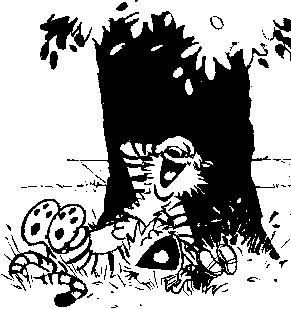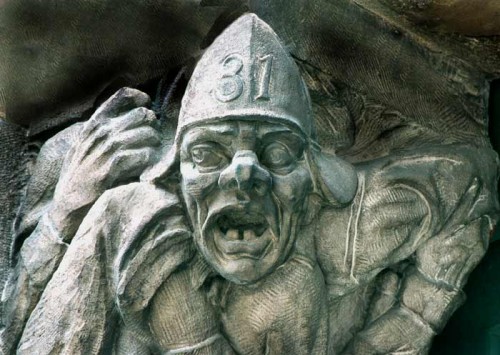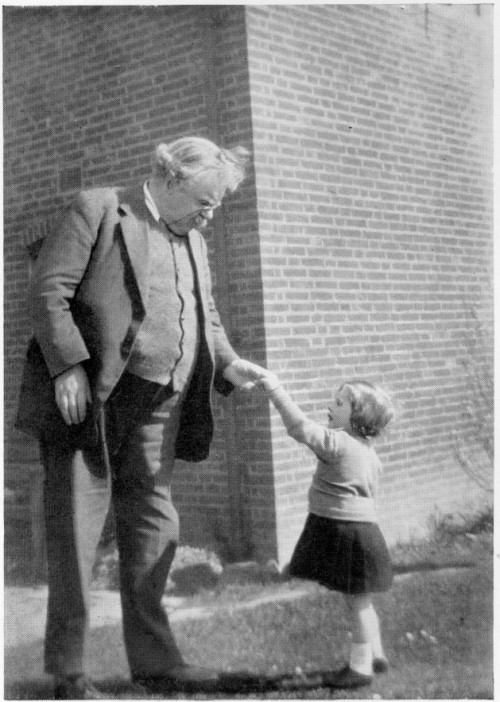G.K. Chesterton (4)

We are perhaps permitted tragedy as a sort of merciful comedy: because the frantic energy of divine things would knock us down like a drunken farce. We can take our own tears more lightly than we could take the tremendous levities of the angels. So we sit perhaps in a starry chamber of silence, while the laughter of the heavens is too loud for us to hear.
– Orthodoxy
G.K. Chesterton (3)

The following propositions have been urged: First, that some faith in our life is required even to improve it; second, that some dissatisfaction with things as they are is necessary even in order to be satisfied; third, that to have this necessary discontent it is not sufficient to have the obvious equilibrium of the Stoic. For mere resignation has neither the gigantic levity of pleasure nor the superb intolerance of pain. There is a vital objection to the advice merely to grin and bear it. The objection is that if you merely bear it, you do not grin.
–Orthodoxy, “The Eternal Revolution”
Chesterton Redux
We have all read in scientific books, and, indeed, in all romances, the story of the man who has forgotten his name. This man walks about the streets and can see and appreciate everything; only he cannot remember who he is. Well, every man is that man in the story. Every man has forgotten who he is. One may understand the cosmos, but never the ego; the self is more distant than any star. Thou shalt love the Lord thy God; but thou shalt not know thyself. We are all under the same mental calamity; we have all forgotten our names. We have all forgotten what we really are. All that we call common sense and rationality and practicality and positivism only means that for certain dead levels of our life we forget that we have forgotten. All that we call spirit and art and ecstasy only means that for one awful instant we remember that we forget.
– Orthodoxy, Chapter Four, “The Ethics of Elfland”
Power Quote: G.K. Chesterton

Mysticism keeps men sane. As long as you have mystery you have health; when you destroy mystery you create morbidity. The ordinary man has always been sane because the ordinary man has always been a mystic. He has permitted the twilight. He has always had one foot in earth and the other in fairyland. He has always left himself free to doubt his gods; but (unlike the agnostic of to-day) free also to believe in them. He has always cared more for truth than for consistency. If he saw two truths that seemed to contradict each other, he would take the two truths and the contradiction along with them. […] The whole secret of mysticism is this: that man can understand everything by the help of what he does not understand.
– Orthodoxy
